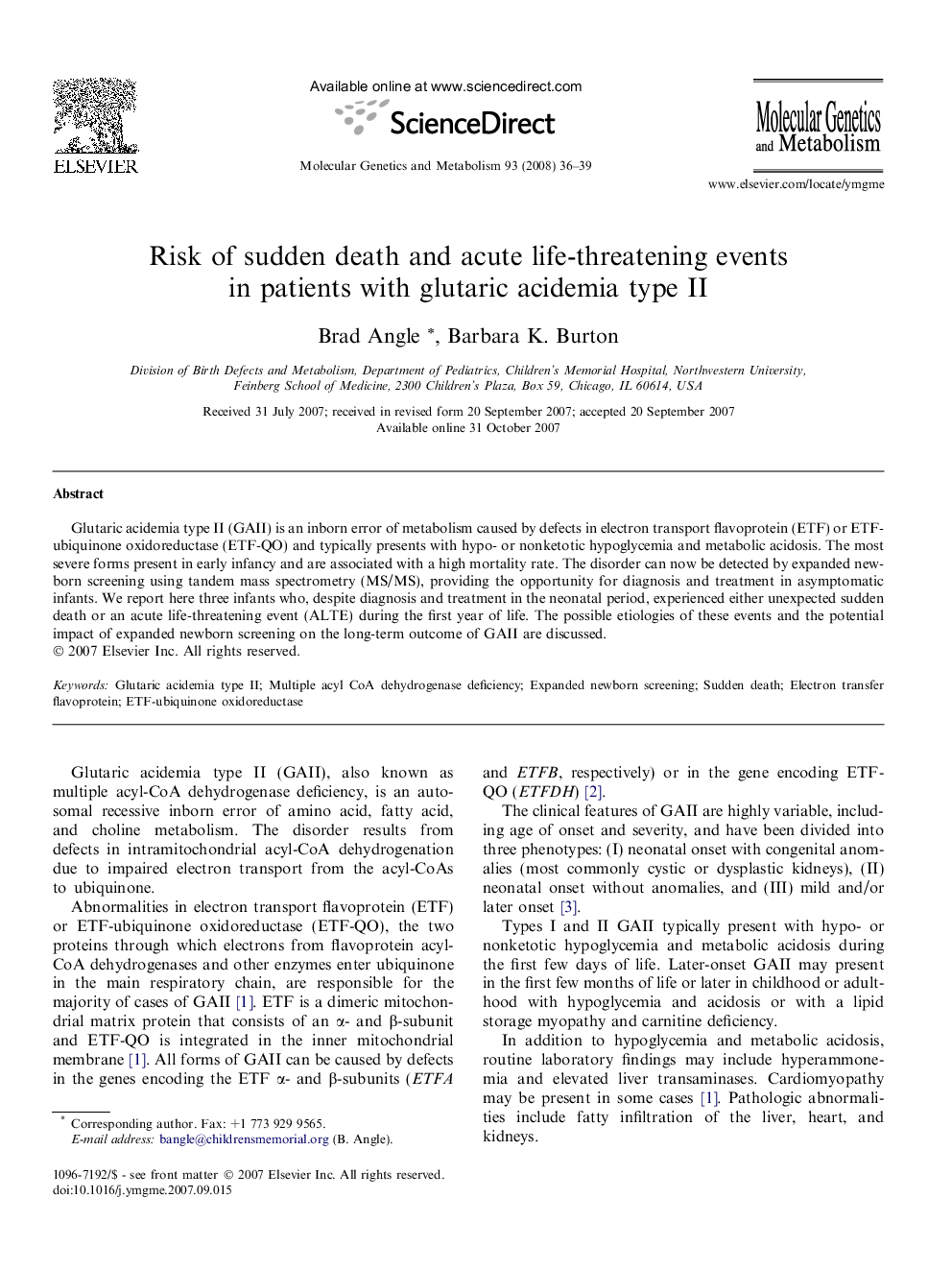| Article ID | Journal | Published Year | Pages | File Type |
|---|---|---|---|---|
| 2000028 | Molecular Genetics and Metabolism | 2008 | 4 Pages |
Glutaric acidemia type II (GAII) is an inborn error of metabolism caused by defects in electron transport flavoprotein (ETF) or ETF-ubiquinone oxidoreductase (ETF-QO) and typically presents with hypo- or nonketotic hypoglycemia and metabolic acidosis. The most severe forms present in early infancy and are associated with a high mortality rate. The disorder can now be detected by expanded newborn screening using tandem mass spectrometry (MS/MS), providing the opportunity for diagnosis and treatment in asymptomatic infants. We report here three infants who, despite diagnosis and treatment in the neonatal period, experienced either unexpected sudden death or an acute life-threatening event (ALTE) during the first year of life. The possible etiologies of these events and the potential impact of expanded newborn screening on the long-term outcome of GAII are discussed.
